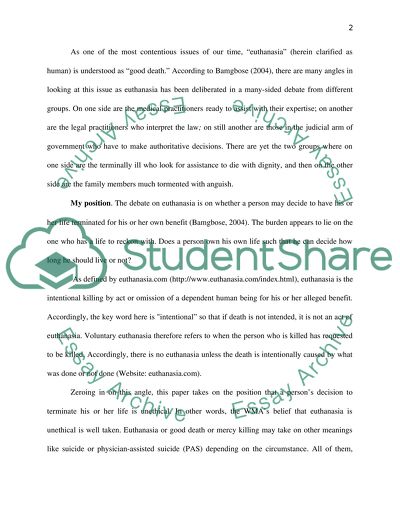Cite this document
(Human Euthanasia is Unethical Essay Example | Topics and Well Written Essays - 2500 words, n.d.)
Human Euthanasia is Unethical Essay Example | Topics and Well Written Essays - 2500 words. https://studentshare.org/social-science/1529322-human-euthanasia-is-unethical
Human Euthanasia is Unethical Essay Example | Topics and Well Written Essays - 2500 words. https://studentshare.org/social-science/1529322-human-euthanasia-is-unethical
(Human Euthanasia Is Unethical Essay Example | Topics and Well Written Essays - 2500 Words)
Human Euthanasia Is Unethical Essay Example | Topics and Well Written Essays - 2500 Words. https://studentshare.org/social-science/1529322-human-euthanasia-is-unethical.
Human Euthanasia Is Unethical Essay Example | Topics and Well Written Essays - 2500 Words. https://studentshare.org/social-science/1529322-human-euthanasia-is-unethical.
“Human Euthanasia Is Unethical Essay Example | Topics and Well Written Essays - 2500 Words”. https://studentshare.org/social-science/1529322-human-euthanasia-is-unethical.


